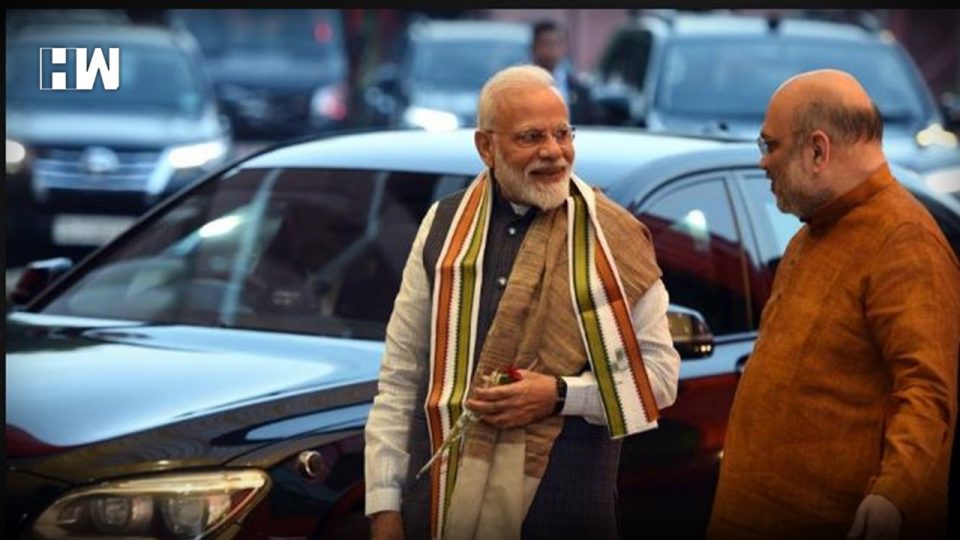However, not only in Maharashtra the governor’s decisions in four other states after assembly election results have raised a lot of questions.
Mumbai| After the assembly elections in Maharashtra, President’s rule was imposed when no party could form the government. The role of governor in the developments that unfolded remained contentious. ShivSena accused that while BJP was given three days to stake claim to form the government, it wasn’t given the required time despite a formal request. The governor later invited NCP but even before the time frame was complete, the governor recommended President’s Rule. Things moved in lightening speed and President’s Rule was imposed in the state.
Meanwhile, NCP-Congress-ShivSena began deliberations over the possible alliance. On Friday, November 22, the parties announced that Uddhav Thackeray would be Chief Minister of the Maha Vikas Aghadi and they would meet the governor by Saturday or Sunday. However, the tables turned in the state as a Midnight coup hit the NCP-ShivSena-Congress.
Maharashtra woke up to the news that BJP’s Devendra Fadnavis took oath as Chief Minister and Ajit Pawar as the Deputy Chief Minister. The Governor’s decision, in this case, raised questions. The three parties contended the claim in the Supreme Court calling it “Mala Fide”.
However, not only in Maharashtra the governor’s decisions in four other states after assembly election results have raised a lot of questions.
After the assembly elections in 5 states in the last 3 years, the governors have been accused of giving preference to the BJP.
Maharashtra:
Congress, NCP and Shiv Sena alliance were discussed till the night of 22 November 2019. NCP chief Sharad Pawar spoke of ShivSena supremo Uddhav Thackeray as the CM. On Saturday morning, BJP’s Devendra Fadnavis and NCP’s Ajit Pawar took the oath. Amidst the rapidly changing developments, the Maharashtra Governor Bhagat Singh Koshyari’s decision also raised questions. According to the information, the Governor cancelled his visit at 12.30 pm to Delhi. After this, President’s rule was also removed from the state and swearing-in ceremony was done. The opposition questioned the governor’s role asking whether he sought a letter of support or the letter staking claim to govt formation from Ajit Pawar and Devendra Fadnavis respectively.
Karnataka:
After the assembly elections in Karnataka in 2018, Governor Vajubhai Vala invited the single-largest party BJP to form the government. The BJP government could not face the floor test in the assembly and Chief Minister BS Yediyurappa resigned. After this, the Congress-JDS coalition government was formed, but 17 MLAs refused to support. All these were disqualified by the speaker. Later, BJP’s BS Yediyurappa has sworn in as Chief Minister once again. In this case, the governor was accused of ignoring the Congress-JDS alliance and giving preference to BJP.
Meghalaya:
Congress was the single largest party with 21 seats after the Meghalaya assembly elections in 2018, but the governor called the BJP and its allies to form the government. The BJP had just 2 seats and the National People’s Party aligned with it had 19 seats.
Goa:
After the Goa Assembly elections in 2017, Congress was the single largest party with 18 seats in the 40-member assembly, but Governor Mridula Sinha invited the BJP to form the government. The Congress filed a petition in the Supreme Court against this and sought to stop Parrikar from taking the oath. Although the court did not stop the swearing-in, on March 16, 2017, at 11 am, Chief Minister Manohar Parrikar was asked for a vote of confidence. Questions were also raised on the governor regarding this decision.
Manipur:
Congress won 28 MLAs in the 60-member Manipur Assembly in 2017. 21 BJP MLAs arrived after winning, but the Governor invited the BJP to form the government by building the post-poll alliance. After this, the BJP government was formed there.
As an independent media platform, we do not take advertisements from governments and corporate houses. It is you, our readers, who have supported us on our journey to do honest and unbiased journalism. Please contribute, so that we can continue to do the same in future.

